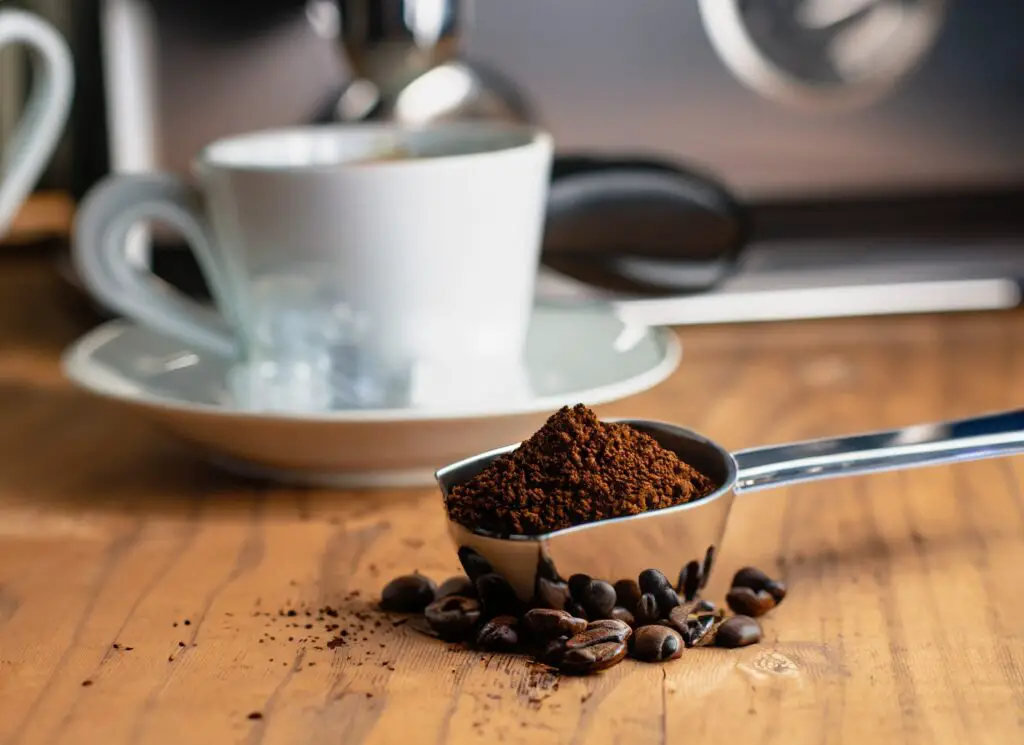As an Amazon Associate CoffeeXplore.com earns from qualifying purchases.
How Many Coffee Scoops Per Cup?
Are you tired of making weak or strong coffee every time you brew a cup?
As a coffee lover and home barista, I understand the importance of measuring coffee accurately to achieve the perfect cup of coffee. Whether you’re a beginner or an experienced coffee enthusiast, knowing how many coffee scoops per cup is essential to avoid wasting coffee and ensure consistent results.
In this article, I’ll share my expertise on coffee brewing and provide you with the answer to the burning question: how many coffee scoops per cup? I’ll also cover related entities such as the importance of using the right coffee scoop size, the ideal coffee-to-water ratio, and the impact of grind size on coffee strength.
By the end of this post, you’ll have a better understanding of how to measure coffee accurately and make the perfect cup of coffee every time. So, let’s dive in and discover the secrets to brewing the perfect cup of coffee.
How Many Coffee Scoops Per Cup?

To answer the question, how many coffee scoops per cup depends on your preferred coffee strength. In general, one standard coffee scoop (approximately 2 tablespoons) per 6-ounce cup is recommended for a strong brew. However, personal taste preferences and brewing methods may require adjustments. In this article, I’ll provide guidance and tips to help you make the right choice.
Understanding Coffee Scoop Size and Measurements
A standard coffee scoop typically holds approximately 2 tablespoons of coffee. Using consistent measurements is crucial for accurate results. The relevance of coffee scoop size when determining the number of scoops per cup cannot be overstated.
Why Coffee Scoops Matter in Brewing Coffee
Consistent measurements ensure that your brewed coffee has a balanced flavor profile. Using different scoop sizes can lead to inconsistent results, affecting the taste and strength of your coffee.
How Coffee Scoops Affect the Taste of Your Coffee
The number of coffee scoops you use directly impacts the taste and strength of your coffee. Too few scoops will result in weak, watery coffee, while too many scoops can lead to an overly strong, bitter taste.
Factors Influencing Coffee Strength
Several factors affect coffee strength, such as personal taste preferences and brewing methods. It’s essential to experiment to find the ideal coffee-to-water ratio for your taste buds.
Determining Coffee Scoops per Cup
As mentioned earlier, the general guideline is one coffee scoop per 6-ounce cup for a strong brew. However, you can adjust the number of scoops based on your desired coffee strength. Here are some examples:
- 1 scoop for 1 cup (strong)
- 1 scoop for 2 cups (medium)
- 1.5 scoops for 2 cups (weak)
Factors to Consider for Optimal Taste
Additional factors that can impact coffee taste and strength include:
- Coffee grind size
- Water temperature
- Brew time
- Coffee quality
Experimenting with these variables will help you fine-tune your perfect cup of coffee.
Adjusting Coffee Scoops for Larger Quantities
When brewing coffee for more than one cup, it’s essential to determine the right number of coffee scoops for various quantities. Use the table below as a guideline:
- How many scoops of coffee for 8 cups: 8 scoops (strong), 4 scoops (medium), or 6 scoops (weak)
- How many scoops of coffee for 4 cups: 4 scoops (strong), 2 scoops (medium), or 3 scoops (weak)
- How many scoops of coffee for 12 cups: 12 scoops (strong), 6 scoops (medium), or 9 scoops (weak)
- How many scoops of coffee for 2 cups: 2 scoops (strong), 1 scoop (medium), or 1.5 scoops (weak)
| Cups | Strong | Medium | Weak |
|---|---|---|---|
| 2 | 2 | 1 | 1.5 |
| 4 | 4 | 2 | 3 |
| 6 | 6 | 3 | 4.5 |
| 8 | 8 | 4 | 6 |
| 12 | 12 | 6 | 9 |
Coffee Scoop Size and Importance
Using a standard coffee scoop size is crucial for consistency. By ensuring that your scoop holds approximately 2 tablespoons of coffee, you’ll achieve consistent results every time you brew a cup.
Tips for Measuring Coffee Scoops
Here are some practical tips for accurately measuring coffee scoops:
- Level the scoop to ensure an even measurement.
- Use a scale for precise measurements if you want to be exact.
- Invest in a quality coffee scoop with clear markings to aid in accurate measurements.
FAQs About Coffee Scoops per Cup
Let’s address some frequently asked questions related to the topic:
How many coffee scoops per cup of water?
The general recommendation is one coffee scoop per 6 ounces of water. However, adjust based on your taste preferences.
How many scoops of coffee per cup Mr. Coffee
Most Mr. Coffee machines follow the same guidelines as mentioned earlier – one scoop per 6 ounces of water for a strong brew.
How many scoops of coffee for 6 cups?
Depending on your desired strength, use 6 scoops (strong), 3 scoops (medium), or 4.5 scoops (weak).
Achieving Desired Coffee Strength
Ultimately, finding the perfect coffee strength comes down to personal experimentation. The recommendations provided in this article are approximate and can be adjusted based on your taste preferences.
Final Thoughts
In summary, the key to brewing the perfect cup of coffee lies in finding the right coffee-to-water ratio based on your taste preferences. By understanding the importance of coffee scoop size and measurements, and considering factors like grind size and brewing methods, you’ll be well-equipped to make a delicious cup of coffee every time. Remember to experiment and adjust your coffee scoops to achieve your desired coffee strength. Happy brewing!
With this comprehensive guide, you’ll now be able to answer the question: how many coffee scoops per cup for the perfect pot of coffee. By taking into account the ideal coffee-to-water ratio, tips for grounds of coffee per cup in a coffee maker, eyeballing the amount of coffee used per pot, exact measurements for tablespoons of coffee per cup, picking your preferred coffee strength, and considering grind styles and coffee ratios for espresso machines, French press makers, and K-Cups, you’re sure to impress your friends and family with your coffee brewing skills. So go ahead and enjoy that perfect cup of coffee, knowing you’ve mastered the art of coffee measurement.



